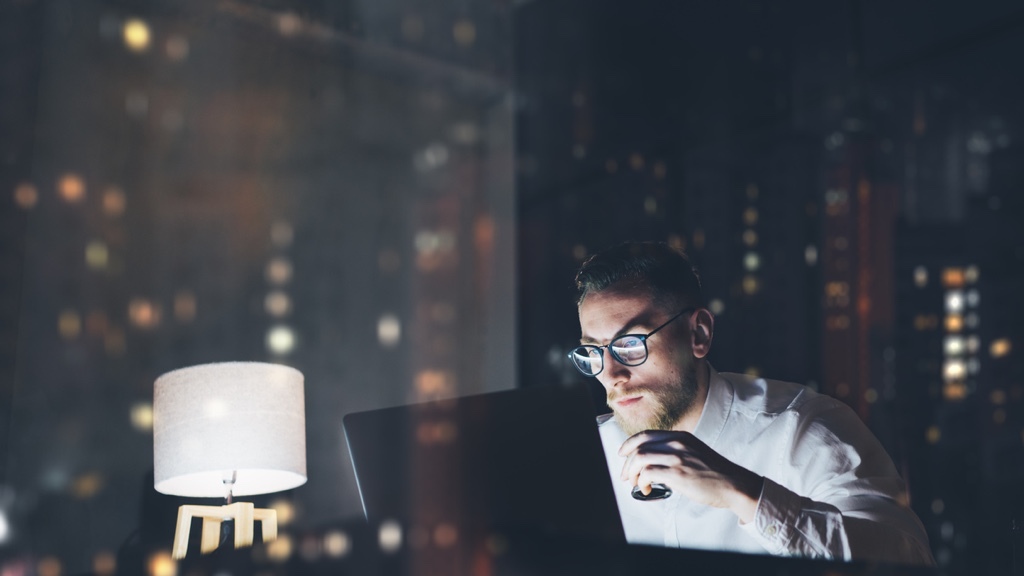The screen setting that makes you sleep better after evening work
Datum: 2024-09-10 13:02

I am guessing you sometimes have to work in the evening as well, just before going to bed. The day did not turn out as planned and you were distracted by other things and tasks. Still, you have to get that one task done before you can wrap up the day and go to bed.
Or, perhaps you have saved a task for the evening since you need some peace and quiet to be able to do it properly. When everybody else is sleeping, you can focus.
For you who prefer listening to reading, this post is also available as an episode of the “Done!” podcast:
It is the light that makes the difference
When it is time to go to bed you want to sleep well. You can increase your chances of a restful night by changing the settings for the computer screen. I willingly admit that when it comes to hormones and body functions, I am only a layman, but studies such as Figueiro et al:s ”The impact of light from computer monitors on melatonin levels in college students.” indicates that the blue light with short wave-length that computer screens normally emit, significantly decreases the secretion of melatonin, which is the hormone that makes us tired.
This is why developers of operating systems have created functions that reduce the blue light during the evening so that looking at a screen close to bedtime will not affect the quality of our sleep as much. For the user, it looks as if the screen is turning more yellow when the sun has set, and it becomes almost orange later in the evening.
Do this
If you have not yet tried one of these light-manipulating tools and want to see what difference they could make for your sleep, turn them on and try them for a couple of weeks.
- In Windows, the function is called Night light, and you turn it on in the display settings in Windows.
- In Mac’s OS X the function is called Night Shift and is activated in the Display section of the System preferences.
When you have turned them on, they run by themselves and regulate the light according to when the sun rises and sets, or according to what other preferences you set it to.
Being tired when it is appropriate
If you adjust the light on your computer screen so that it does not reduce your melatonin-levels as much when you are working in the evenings, you will sleep better — if you are to trust the study I referred to. An unplanned working session just before bedtime and the fact that the day did not turn out as you had planned, will not trouble you as much. It makes you feel a little better, doesn’t it?
What is your way?
What is your experience of adjusting the screen light? Is it a “yey” och “ney” for you? Let me know in an email to me!
(By the way, beware of office sleep overs!)
Want more like this?

If you want more tips on how to create good structure at work, there are many ways to get that from me - in podcasts, videos, books, talks and other formats.




